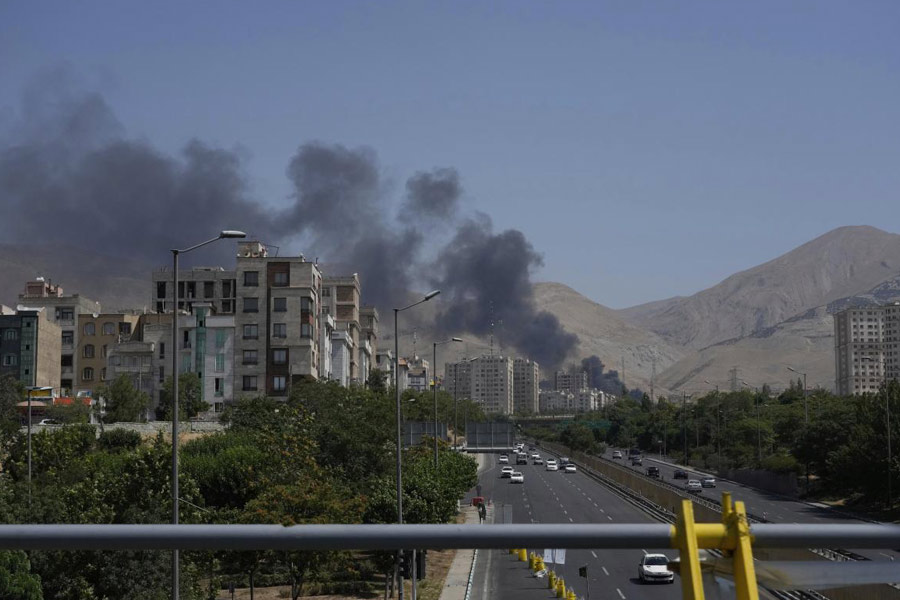Iran launched a missile at Israel on Thursday that scattered small bombs with the aim of increasing civilian casualties, the Israeli military and its Washington embassy said, the first reported use of cluster munitions in the seven-day-old war.
"Today, the Iranian Armed Forces fired a missile that contained cluster submunitions at a densely populated civilian area in Israel," the embassy said in an email to Reuters that did not identify the area.
What are cluster bombs?
"Cluster weapons are designed to disperse over a large area and maximize the chances of a harmful strike," the email continued. "Iran unlawfully fired deliberately at civilian population centers, and seeks to maximize the damage to civilians in them by using wide-dispersal munitions."
Iran’s mission to the United Nations did not immediately respond to a request for comment.
How cluster bombs work
Israeli news reports quoted the Israeli military as saying the missile’s warhead split open at an altitude of about 4 miles (7 km) and released around 20 submunitions in a radius of around 5 miles (8 km) over central Israel.
One of the small munitions struck a home in the central Israeli town of Azor, causing some damage, Times of Israel military correspondent Emanuel Fabian reported. There were no reports of casualties from the bomb.
Cluster bombs are controversial because they indiscriminately scatter submunitions, some of which can fail to explode and kill or injure long after a conflict ends.
The Israeli military released a graphic as a public warning of the dangers of unexploded ordnance.
“The terror regime seeks to harm civilians and even used weapons with wide dispersal in order to maximize the scope of the damage,” Israel's military spokesperson, Brigadier General Effie Defrin, told a briefing.
Cluster munitions hit 'civilian targets'
Daryl Kimball, executive director of the Arms Control Association advocacy group, said, "They are egregious weapons with their wide-area destruction, especially if used in a civilian populated area and could add to the unexploded ordnance left over from conflicts."
Noting that Iranian missiles can be imprecise, he said that Tehran should know that cluster munitions "are going to hit civilian targets rather than military targets."
Iran and Israel declined to join a 2008 international ban on the production, stockpiling, transfer and use of cluster bombs that has been signed by 111 countries and 12 other entities. After extensive debate, the U.S. in 2023 supplied Ukraine with cluster munitions for use against Russian occupation forces. Kyiv says Russian troops also have fired them. The three countries declined to join the Convention Against Cluster Munitions.










